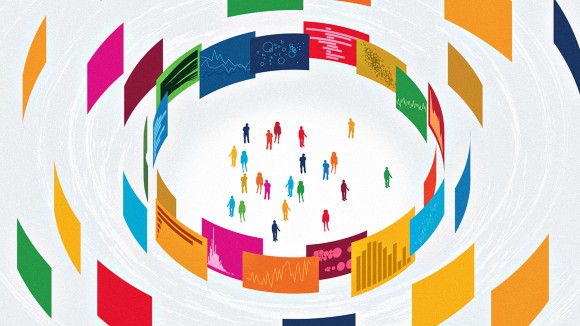Exploring Pathways to Achieve Sustainable Development Goals

A recent study by the Potsdam Institute for Climate Impact Research (PIK) sheds light on the potential pathways toward achieving the UN Sustainable Development Goals (SDGs) and the Paris Agreement. The research reveals that sustainable lifestyles, green-tech innovations, and government-led transformations can significantly advance progress in these areas. Contrary to the perception that sustainable development is increasingly unattainable, the findings suggest that humanity has multiple strategies to shift away from its current unsustainable trajectory.
Bjoern Soergel, a scientist at PIK and the lead author of the study published in *Environmental Research Letters*, explains, "Sustainable development pathways are strategies that prevent dangerous climate change while at the same time moving towards a world that allows people to prosper on a healthy planet." These pathways align with the 17 SDGs established by the United Nations in 2015.
The analysis indicates that all three sustainable development pathways outperform the current 'business as usual' approach. They could reduce the number of individuals living in extreme poverty by two-thirds by 2030 and bring that number to virtually zero by 2050. Additionally, these pathways would mitigate global warming and prevent further environmental degradation. Importantly, they avoid the unintended consequences of simplistic climate protection strategies that overly rely on bioenergy or carbon capture without considering conflicts with food production or public acceptance.
The study examines three distinct pathways toward the SDGs, utilized by governments, companies, and NGOs to promote a sustainable future. This research is notable for being the first to systematically compare such diverse pathways, analyzing data from four models: two integrated assessment models addressing the global energy, economy, land, and climate systems, and two models focused on global buildings and materials sectors.
Isabelle Weindl, a PIK scientist and co-author of the study, highlights the importance of the question, "All scenarios we looked into share the same set of goals, but the question is how to get there." Each pathway examined presents unique advantages. For instance, the sustainable lifestyle pathway emphasizes a swift transition to a flexitarian, primarily plant-based diet, which also offers significant health benefits. This approach aims for a reduction of global final energy use per capita of approximately 40% by 2050, with wealthier nations taking the lead in decreasing energy inequality. While these changes may present challenges regarding public adoption, they promise substantial benefits, as Soergel points out: "The sustainable lifestyle pathway has the lowest reliance on unproven technologies and the most positive outcomes for biodiversity and climate protection."
In contrast, the other pathways propose a gradual shift in diets and energy use while advocating for faster innovations in green technologies and enhanced government interventions. Each pathway comes with its own set of challenges. Elmar Kriegler, head of the research department Transformation Pathways at PIK and co-author of the study, emphasizes that, despite the differences in emphasis, all pathways can achieve their goals. "If we stick to our current trajectory, none of the SDGs will be achieved. By 2030, 660 million people could still be living in extreme poverty, and environmental crises like biodiversity loss and global warming will worsen. It is clear we must act now. We can still choose which sustainable path to pursue, but ignoring them is no longer an option."
Story Source:
Materials provided by Potsdam Institute for Climate Impact Research (PIK). The original text of this story is licensed under a Creative Commons License. Note: Content may be edited for style and length.
Journal Reference:
- Bjoern Soergel, Sebastian Rauner, Vassilis Daioglou, Isabelle Weindl, Alessio Mastrucci, Fabio Carrer, Jarmo Kikstra, Geanderson Ambrósio, Ana Paula Dutra Aguiar, Lavinia Baumstark, Benjamin Leon Bodirsky, Astrid Bos, Jan Philipp Dietrich, Alois Dirnaichner, Jonathan C Doelman, Robin Hasse, Ariel Hernandez, Johanna Hoppe, Florian Humpenöder, Gabriela Ileana Iacobuţă, Dorothee Keppler, Johannes Koch, Gunnar Luderer, Hermann Lotze-Campen, Michaja Pehl, Miguel Poblete-Cazenave, Alexander Popp, Merle Remy, Willem-Jan van Zeist, Sarah Cornell, Ines Dombrowsky, Edgar G Hertwich, Falk Schmidt, Bas van Ruijven, Detlef van Vuuren, Elmar Kriegler. Multiple pathways towards sustainable development goals and climate targets. Environmental Research Letters, 2024; 19 (12): 124009 DOI: 10.1088/1748-9326/ad80af

0 Comments